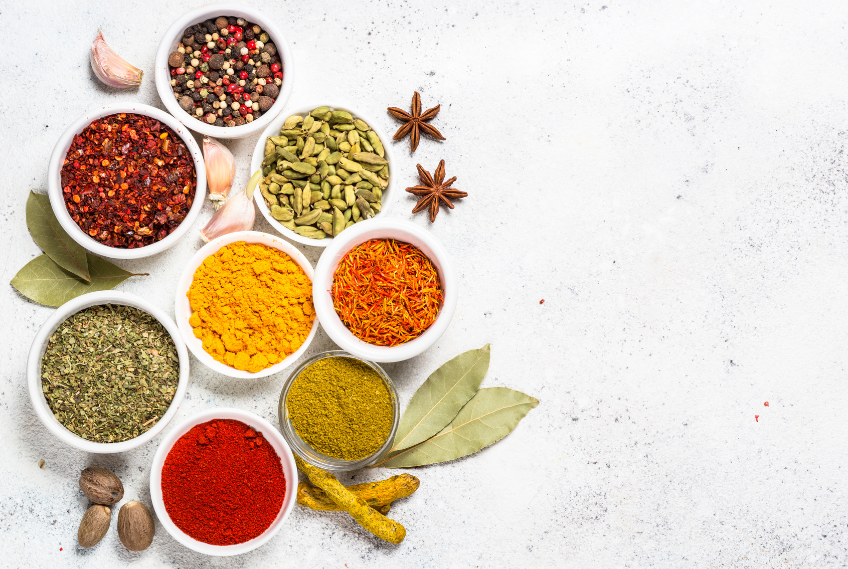
Herbs and Spices: Anti-Inflammatory Autoimmune Diet Support
This is Part 2 of a two-part series on anti-inflammatory autoimmune diet support.
Basil
Researchers from the University of Michigan have shown that holy basil has anti-inflammatory activity compared to aspirin, ibuprofen, and naproxen. Traditional basil contains a compound called eugenol, which eases muscle spasms. Basil can help relieve gas and soothe a turbulent tummy. Basil is a great herb to add to salads and a subtle way to approach autoimmune diet support.
Cayenne
What doesn’t this spice do? Capsaicin, the source of cayenne’s bite is the main ingredient in many commercial treatments for arthritis and muscle pain. It’s also used to heal shingles. It’s thought to be an anti-inflammatory, an antioxidant—and even anti-diabetic! The ancient Maya used this fiery spice to treat mouth sores and inflamed gums. Try it for autoimmune diet support with your next meal.
Cinnamon
Perhaps best known for its ability to significantly lower blood sugar with as little as 1/4 to 1/2 teaspoon a day, cinnamon is beneficial for diabetics. Cinnamon bark contains an oily chemical called cinnamaldehyde, which is a potent antibacterial that also helps reduce anxiety. Cinnamon bark helps regulate the menstrual cycle. It’s also high in fiber! Add cinnamon to your morning smoothie.
Ginger
Known most for its ability to help with nausea and motion sickness, ginger increases digestive fluids and absorbs and neutralizes toxins and stomach acid. In addition, ginger helps ease inflammation in the body, with positive effects on arthritis and migraines. As an anti-inflammatory, it may also play a role in preventing and slowing the growth of cancer. Ginger tea is my favorite. A chunk of ginger with hot water and lemon is a great afternoon break.
Mint
Its leaves have been used for hundreds of years to soothe digestive problems, which is why peppermint tea is such a common after-dinner drink. Recent studies show it has positive effects on IBS and flatulence, and because it also relaxes the esophagus, it allows for relief of gas through belching. The same property that relaxes the airways, menthol, is responsible for fighting bacteria and viruses. Add mint to your water for a very refreshing treat. Super easy to grow in the garden.
Sage
An unsung hero, sage is well known for its place in the culinary world, but it deserves recognition as a potent healer. It enhances memory, can soothe an upset stomach, and reduce night sweats. Studies have shown antibacterial, anti-fungal, antiviral, and astringent properties, all great for autoimmune diet support.
Turmeric
A powerful anti-inflammatory, turmeric’s effects have been compared to that of topical hydrocortisone! The chemical responsible for its deep orange-yellow color is curcumin, a proven anticancer agent. Recent studies show turmeric can help prevent Alzheimer’s disease. I have a great herbal combo and turmeric is a big part of it. Works great!
Do you have inflammation issues? Are you including herbs and spices into your regime? Contact the nutritionists at Healthy Nest Nutrition for more tips on auto-immune diet support. We make it easy and approachable, and set you up for success to meet your health goals.
